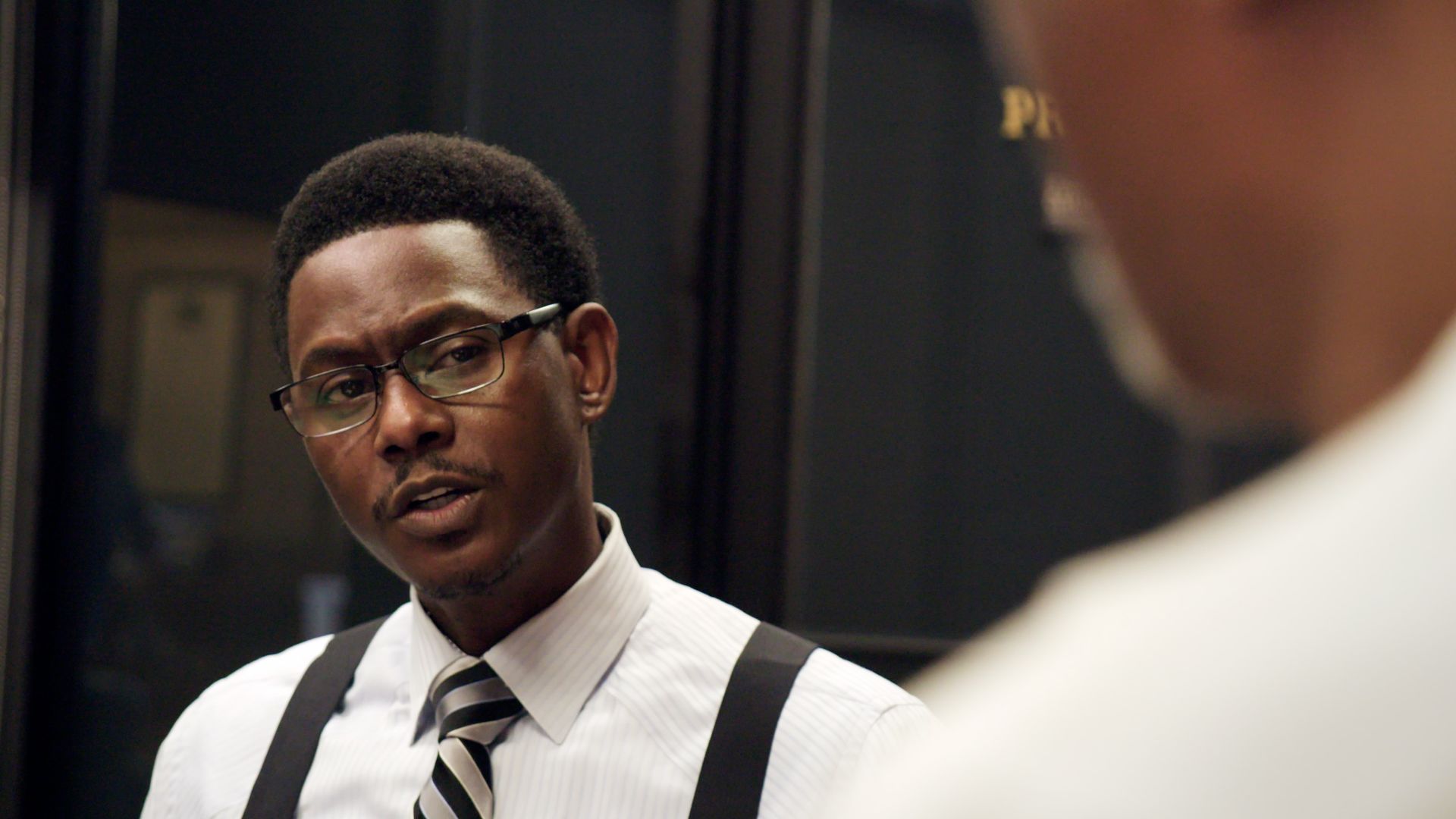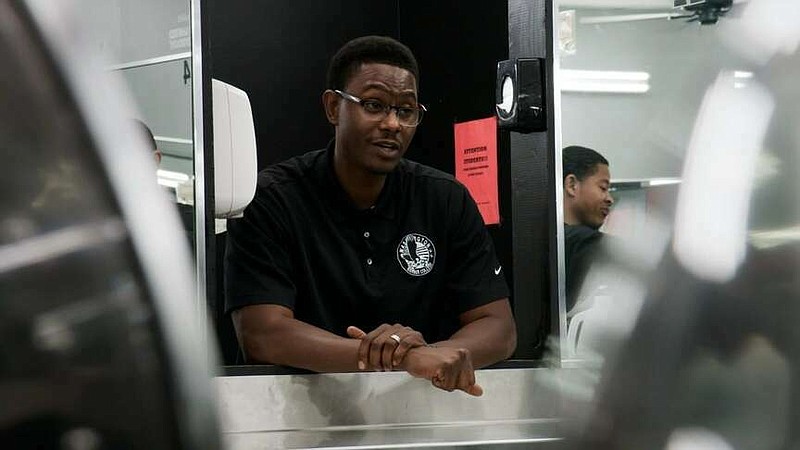In the opening frames of “The Barber of Little Rock,” Arlo Washington, the film’s amiable but tenacious steward, instructs a group of students at his Washington Barber College, where he has mentored 1,500 licensed barbers to date. He parts, clips, and styles a mannequin's hair, all while dropping insights on the business side of barbershop ownership. Moments later, after a short car ride down the road, Washington has pivoted to vetting local Little Rock business owners as part of his nonprofit fund The People Trust, an organization that offers loans for people thwarted by traditional banks. “Capital is the lifeblood of a community,” Washington’s voice carries over a montage depicting the economic disparities of Little Rock. “If the blood ain’t circulating, then you’re gonna’ have some issues. Blood has not been circulating for a long time.”
Filmmakers Christine Turner and John Hoffman’s documentary short film, which is nominated for an Oscar at the upcoming 96th Academy Awards, plays as both a jarring unmasking of economic injustice in America and a hopeful portrait of a community’s push for financial sovereignty. Little Rock, a place still deeply haunted by its history of Jim Crow laws, redlining, and other discriminatory policies, is in many ways a microcosm of national issues surrounding the racial wealth gap. Relying on Arlo Washington as their conduit into this tight-knit community within a community, Turner and Hoffman are getting at something vast but intimate: the challenges of banking while Black, and the community know-how that it will take to overcome such economic inequities.
Turner, whose work often flashes her knack for deep-hearted portraiture, consistently straddles the nonfiction and fiction spaces, as well as short and feature length films. During her time at NYU Tisch, she received her BFA from the Kanbar Institute of Film and Television and before that attended the Summer High School Program in television broadcasting. Just days ahead of the 2024 Academy Awards, she spoke with NYU Tisch about honoring the beauty in a community’s struggle and the importance of creating portraits of empowerment, not victimization.
“The Barber of Little Rock” is presented by The New Yorker and is available to watch for free.
There is a cyclical theme of trust that courses throughout the film. How do you go about establishing trust with your subjects, particularly when the people portrayed have been often exploited?
Trust is important in every documentary film project that I make. Building that trust, establishing that trust from very early on in the process is essential to being able to tell an authentic story. In this particular case we worked hard to establish trust with our primary subject, Arlo Washington. He is somebody in his community who already has the trust of so many people, so that trust was initially extended to us by virtue of others trusting him.
We came to know people better and develop relationships, and then we strengthened and deepened those relationships. The interviews that you see in the film were actually one of the last things that we shot. We got to know people as we were moving along, and by the time we did those interviews people really understood the mission behind what we were trying to say with the film. This is not just one man's story, but it's a community's portrait.
Arlo straddles many roles within the community: teacher, banker, friend, mentor. How protective was he of his ongoing work, and how did you, John, and him collaborate to make sure this story would honor his vision?
I think he thought long and hard about what it might mean to bring cameras into these different environments. He had appeared on the local news before, and he had done sort of shorter interviews, but being in a documentary film is a real commitment. That was something that he thought about with his team and with his family. We want everyone to take the time to think about participating because it is such a time commitment and because we are going to be following people for so long. And so yeah, I think it's important that everybody is well aware.
During the interview process I also try to share things about myself and find the common ground and the shared experience there. That often helps in terms of allowing people to feel comfortable and open up about what might otherwise be taboo things to talk about. My feature debut documentary film, Homegoings, is about a funeral director in Harlem and I interview members of families who are in the mourning process. And so being able to develop those relationships and give people the time that they need to process and think about participating has always been very important to me.

